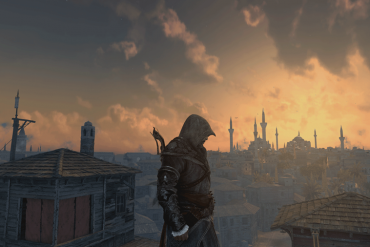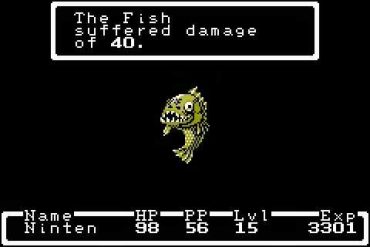Assassin’s Creed II
…indeterminacy between Ezio, Desmond, and the player. The game manages to produce a real sense effect on the player, that is presumably the very same one Desmond could have felt. Desmond is a voyeur, someone who observes without being observed, but Minerva crashes this expectation in the blink of an eye. Desmond’s identity changes, he is now an agent, directly interacting with Minerva. Game designers obtained this effect with much care, using dialogues and above all Minerva’s sudden direct glance to the virtual camera.
For Compagno, Desmond’s dream-like search through his DNA memories “on the couch” of the…








